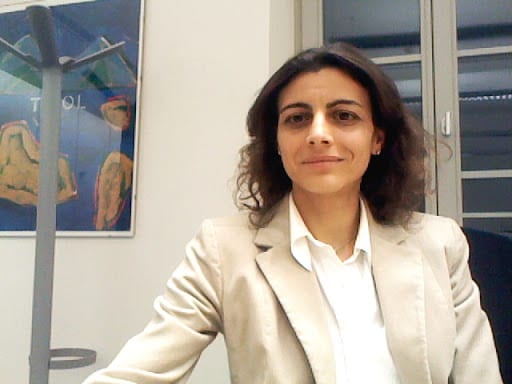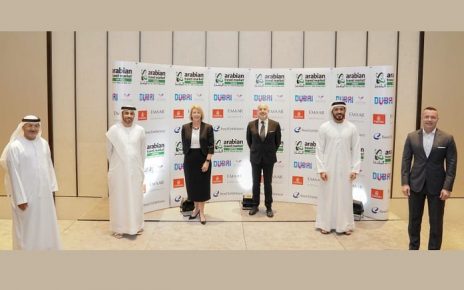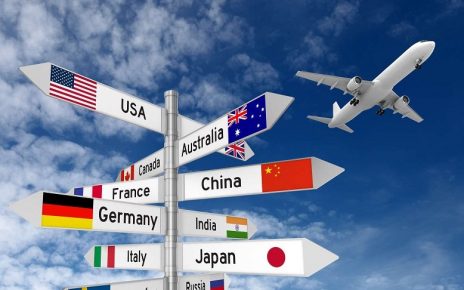Dr. Marianna Sigala, Professor, University of South Australia Business School is the guest of today’s Q&A by World Tourism Network. Moderated by Dr. Elinor Garely.
It is obvious that the tourism industry has been devasted by COVID-19. The harsh, but necessary stop to travel created an unparalleled number of job losses around the world and it is estimated that 100.8 million tourism workers have been removed from the workplace since 2019.
When the embargoes and quarantines are lifted, and the consumer begins to feel confident enough to abandon the couch and move beyond their immediate neighborhood, there will be new demands on the tourism industry because the “renewed” traveler is not the same visitor who ventured around the world in 2019.
Meet Dr. Marianna Sigala, Professor, University of South Australia Business School .
Adventure Reevaluated
The changed traveler will be looking for more personal and private tourism experiences, moving away from the formerly popular mass destinations and experiences that have supported and encouraged by cruises and tour operators. The revitalized traveler has developed heightened expectations for clean and is likely to shift to holiday experiences that focus on quality as opposed to quantity. This shift in focus may benefit the luxury travel market and cause the budget hotelier to revisit the image and definition of their brand.
Flexibility and penalty-free cancellations will be part of the post-pandemic consumers expectations and will be part of the reservation’s terms and conditions. Companies featuring flexibility will be the most attractive to the wary and cautious traveler.
Spontaneous travel may see a decline as holidaymakers express their thoughtfulness by spending more time and effort in pre-planning all trip decisions. Adventures are likely to focus on outdoor activities such as hiking, biking, walking and water – based experiences which will move away from mega-cruises, and center on private yachts, canoeing, rowboats, kayaks and swimming.
New travelers and new travel preferences will require tourism executives to review and even rewrite the ways in which their enterprises are managed. Many industries are encouraging employees to continue to work remotely, clearly not a choice in tourism as it requires personal services and customer/guest interaction.
Job Descriptions Updated and Refined
The post-COVID-19 manager will be required to have an increased amount of emotional stability and be adaptive and flexible in the face of uncertainty. Skillsets will demand digital and cognitive expertise. The successful tourism manager will have to be social media savvy as tourism decisions are increasingly made as a result of social media interactions and recommendations and digital advertising budgets may increase up to 78 percent as businesses seek to link directly with their customers.
The new manager will be interacting with staff, consumers and vendors on ZOOM and sharing video content with multiple markets and it is forecast that 82 percent of online content will be in video format by 2022.
Medium.com (2020) predicts that 123 million people will use voice assistants in daily life by the end of 2022 and therefore the tourism executive will be required to maintain marketing information that can be quickly and accurately “discovered” by travelers seeking quick searches and language translations.
There is a growing requirement for contactless interactions and managers will have to be tech savvy in order to obtain and retain technology that provides touchless experiences from reservations, check-in and payment, to in-room services, attractions and amenity scheduling.
Reskilling
As far back at 2017, a McKinsey Global Institute (MGI) analysis estimated that 14 percent of the global workforce would need to be reskilled entirely, with 40 percent needing partial reskilling to continue with their current occupations. Corporate leaders surveyed by MGI indicated the requirement was urgent, with up to 70 percent of US and European executives talking about reskilling needs by 2020.
LinkedIn’s 2020 Workplace Learning Report supports this research revealing that 99 percent of learning and development executives believe that if skill gaps are not closed in the next 3-5 years, the customer experience and satisfaction will be negatively affected. Without new management tools, product development and delivery and the company’s ability to innovate will be hampered, resulting in an erosion of growth.
The LinkedIn report cites 57 percent of talent developers focusing on leadership and management skills, 42 percent highlighting the need for creative problem-solving and design thinking skills and 40 percent emphasizing the need for improved communication skills.
Education and Training
Colleges and universities around the world will be tasked with the redesign of curriculum to prepare students for entry-level positions while bringing current managers up-to-speed for operational success in the revitalized tourism industry. New skillsets will require personnel to be:
- Fully operational in a completely digital environment. There will be a need for seamless contact with the organization’s ecosystem: guests, partners, suppliers, staffers, investors, and public authorities. All employees will need a basic understanding of critical technology, data concepts, and processes including data visualization, applied machine learning and advanced analytics.
- Mindful of their cognitive skills for redesign and innovation. The redesign of space(s) will go beyond attractive furniture and fixtures to include state-of-the art HVAC systems, the metrics associated with social distancing, enhanced sanitizing and the integration of robotics into the workplace.
- Socially and emotionally savvy in order to ensure effective collaboration, management and self-expression. These abilities will enable employees to create and grow client/guest relationships, drive change, and support employees. Leaders will need advanced communication and interpersonal skills, including empathy.
- Adaptable and resilient in order to survive the after-shocks of COVID-19. Managers and executives will use their pandemic experiences as a source of learning and integrate their heightened level of self-awareness to build self-confidence and self-reliance. The innovative manager will be expected to manage his/her personal and professional time as well the time and efforts of staff, while establishing and maintaining boundaries.
Experts and Innovators
To address management and employee issues facing tourism executives as the industry restarts, the guest on the World Tourism Network is Doctor Marianna Sigala a professor on the faculty of the University of South Australia Business School.
Dr. Sigala received her PhD from the University of Surrey and a Certificate of Advanced Academic Studies from the University of Strathclyde. She holds a Masters degree in Tourism Management from the University of Surrey. She obtained her BA from the Athens University of Economics and Business in Greece, and a Postgraduate Diploma from the University of Lancaster. She has been associated with the University of the Aegean (Greece).
Professor Sigala has many published works that focus on operations management, information and communications in the fields of Tourism and Hospitality. Currently she is the co-editor of the international Journal of Service Theory and Practice and the editor of the International Journal of Hospitality and Tourism Cases. Sigala has been on the Board of Directors for the International Federation of Information Technology, Tourism and Travel (IFITT), the International Council on Hospitality, Restaurant and Institutional Education (I-CHRIE), the Hellenic Association of Information Systems (HeAIS) and the Executive Board of the European Council on Hospitality, Restaurant and Institutional Education (EuroCHRIE).
As a noted tourism expert, Sigala was awarded the EuroCHRIE Presidents’ Award for her lifetime contributions and achievement in tourism and hospitality education.




